Every year in China, tens of thousands of children are forcibly taken away from their mothers by their own fathers. How terrible is the shock for mothers when their children suddenly disappear?
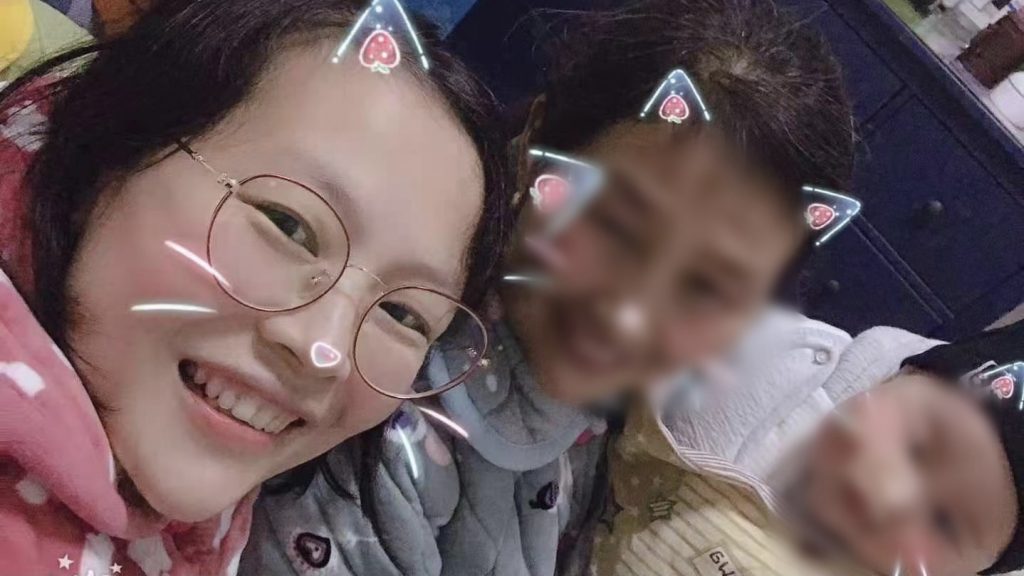
Ying Wang, a Chinese woman, 39, held her one-year-old son in her left hand as she sat at the dining table and chatted with Lou Qiao, her husband. According to the police report, they got into an argument here. Then, Wang was taken to hospital for surgery.
When the ambulance left their home, she said she saw her son in Qiao’s arms, and it was the last time she would visit her child in person, but she did not realize it at that time.
The morning after the surgery, Wang woke up and called him. “I wanted him to help me carry things from home, but he told me to stop calling, and that he would take the baby away with me,” said Wang.
In China, there are many families involved in parental child abduction. Haiyi Chen, a Chinese judge for more than 20 years, said to Legal Daily: “If a family has children, all divorce disputes involve custody and visitation rights, and at least 50% of the cases involve abducting and hiding children.”
Unfortunately, Chinese law has so far failed to clarify the legal penalties for biological parents who abduct and hide their children, which means that there are no illegal costs, according to Li Zhao, a Chinese lawyer who specializes in divorce disputes of Beijing Anjia Law Firm.
Sudden and forced disconnection
The date was January 19, 2020. Since then, Wang has been unable to contact Qiao by phone, she said. And the son disappeared with him, hidden away at his sister’s apartment.
However, Qiao disagreed with Wang. “There is no such thing,” he said. “She had been away from home since the late 2019 and showed up more than a year later.”
Abandoning her husband and son – was how he described Wang.
As for the reason for placing the child with his sister, Qiao said: “I have to work, so I can’t take care of him at the same time.”
After Wang left the hospital, “the lock on the door of the apartment had been changed,” she said. She began to think about what had happened before.
That day, she asked Qiao why he had missed a reimbursement trip to a government agency. And then they had an argument about it.
Wang claimed that the man suddenly stood up and threw a big bowl at her right hand. But Qiao denied this to the police, saying that she had hurt herself.
“The right hand is no longer as flexible as before,” said Wang. After the stitches were removed, the middle and ring fingers became thinner and bent, and they could no longer grab objects with force.
Beating is a violation of human rights, and if the degree of violence is serious, the assault may even involve criminal responsibility, according to Jing Zhang, a Chinese lawyer who has studied parental abduction for years.
In the hospital records and medical appraisals displayed by Wang, her injuries were characterized as slight bodily injury. “Legally, if it’s a slight bodily injury, it’s possible for the judge to decide that the abuser is domestic violence,” said Xiao Chen, a Chinese lawyer specializing in marital disputes.
But as for Qiao’s violent behavior that Wang claimed, the local police did not punish him. On the local police report, the police concluded that there was insufficient evidence to substantiate the case.
However, her, him, and their one-year-old child were the only witnesses at home. “The piece of the bowl that hit my hand was gone,” she said.
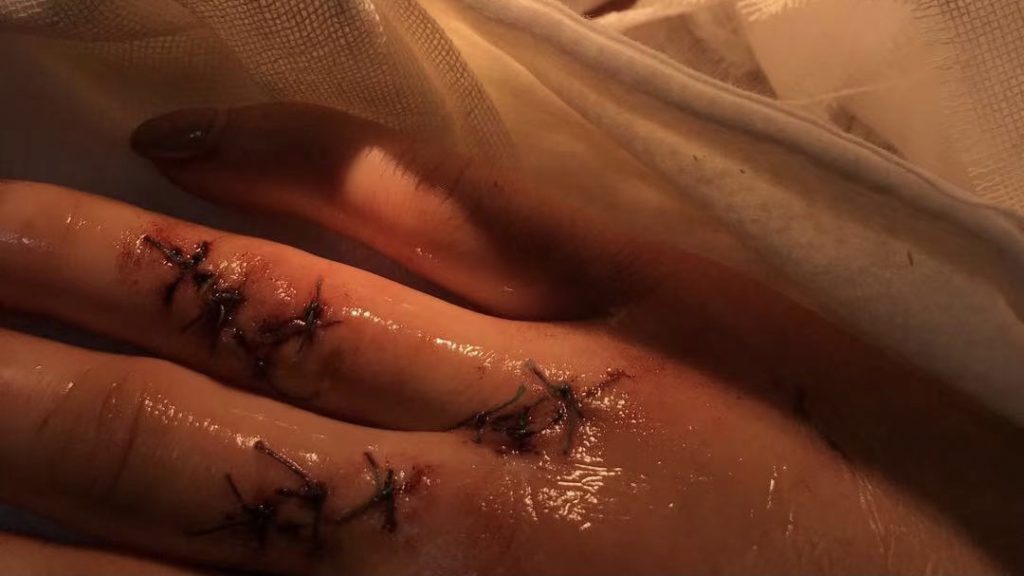
She felt that Qiao’s sudden and forced removal of the child from her side was premeditated.
“Taking the baby while I’m in the hospital is the best time,” she said. “That’s the only way to explain it.”
Planned abduction
The term ‘premeditated’ was also used by Xiaolei Dai, 41, an art director who worked on Transformers 4, to describe the disappearance of her child.
On December 31, 2013, Dai flew back to Beijing from Canada with her son and her ex-husband, Bailuo Bi, the martial arts instructor of the 10-billion-hit Chinese TV series, Nirvana in Fire.
It was midnight when she got home. She turned on the light as usual. As the lights came on, she suddenly noticed Bi’s mother and sister sitting in her apartment.
“I was actually very unhappy about showing up at my apartment without my permission,” she said. With doubts and discontent in her heart, Dai went back to a bedroom to rest.
When she woke up the next morning, she suddenly found that Bi and his family had arranged a car to take her child back to the countryside of Hebei province, where Bi was born.
“Because they don’t allow me to work in Beijing and take care of my child at the same time, or hire a nanny,” said Dai. “But it’s not negotiable.”
She made it clear that she did not consent to her child being taken away.
Then, the child was carried into a descending elevator, where she and Bi argued. “He punched me in the head,” said Dai.
In Dai’s memory, his mother and sister were unmoved at that time.
“I was powerless to resist, because Bi have too many accomplices,” she said.
At first, she felt she had the space to let her child live in Hebei province for a while, as they wanted. She can also reunite with her son there when Chinese New Year breaks next month.
This did not seem to be a dead end.
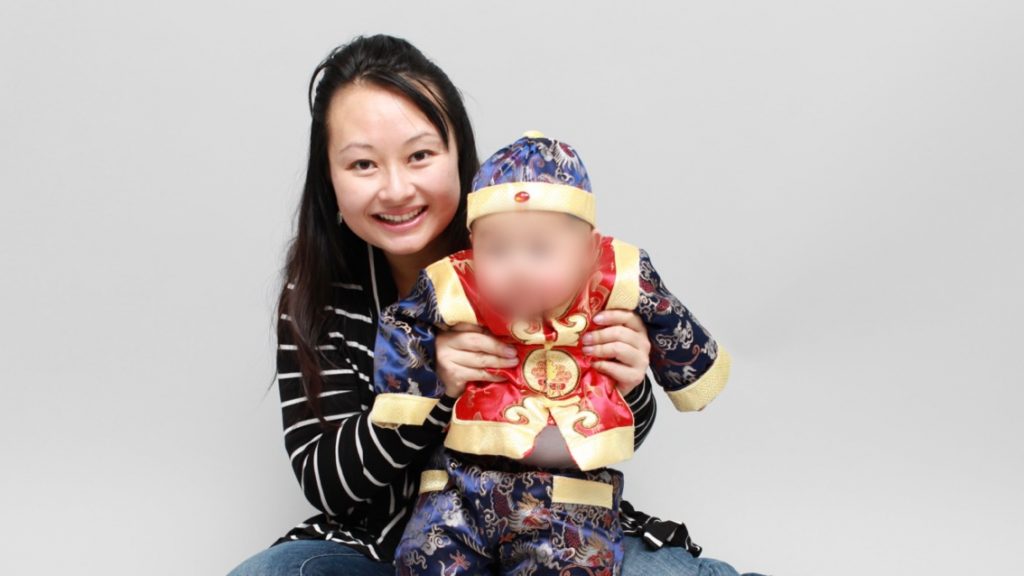
But she said something unpleasant happened again when they met again. They had an argument, and she set off for Beijing the next day.
This time, the separation with the child is seven years.
“In seven years, I’ve only seen my child for 25.5 hours,” she said.
Like Wang, she was unable to reach the father of her child: he blocked all her contact information.
Bi could not be reached for comment.
“I began to doubt myself,” said Dai. “I wonder why they would do that if I didn’t do anything wrong?”
The atmosphere extended from the courthouse to the counseling room. “They always ask me: ‘what did you do wrong’. I don’t answer those questions anymore because I didn’t do anything wrong,” she said.
“Those are things that Bi has planned for a long time. So, no matter how much I objected, it was easy for them to get it done.”
The cost of visiting children
Dai knew the child was hidden in Bi’s home in Hebei province, and she has been trying to see him. But the door was always closed to her.
One Mid-Autumn Festival, a Chinese festival for family reunion, Dai went to meet Bi’s parents with a gift box. “I said I was coming to see my baby,” she said. “His mom just said, ‘I’m boiling hot water and if you come near me again, I’m going to throw carbon at you’.”
In addition to the hot carbon, it also had a vicious dog waiting for her. “I can never get through that iron gate. If they didn’t burn the carbon on me, they would set the dog on me,” she said.
In these years, “they did not even show me a picture of my kid,” she said.
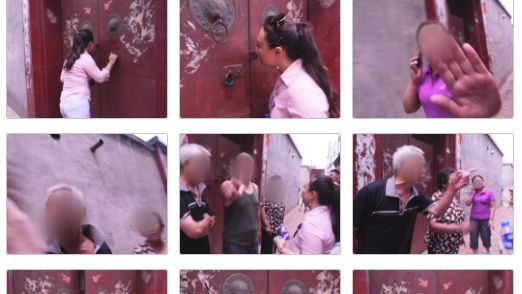
Dai finally went to the hotel for the first time with the help of the judge, carrying carefully prepared toys to visit her child after three years of separation on April 2, 2017.
By this time, her marriage to Bi had been dissolved.
When they met, Dai found that her son was not familiar with Dai, and he thought she was a teacher.
“I keep telling him I’m not your teacher, I’m your mother,” she said.
Court-mandated visiting hours were three hours. After one hour, “Bi claimed that the child was tired and needed to go home to rest,” said Dai.
However, she felt the child was not tired, “he was having a good time with me.”
The child left. “Clanging,” Bi locked the door of the hotel room, leaving them alone, she said, and then he suddenly started punching and kicking Dai.
“He pushed me to the ground and then repeatedly stomped on my lower stomach,” said Dai. This part for a woman is home to many vital organs, such as the bladder, the uterus and part of the bowel, according to Livi, a healthcare provider platform. But because of abdominal adipose, leave scar not easily.
This is the target of Bi’s attack. “He wouldn’t touch my face,” she said.
“I managed to escape and went with the police to the hospital for a check-up, but the doctor couldn’t find any specific injuries, because he punched me so cleverly,” she said.
Bi did not receive any punishment despite calling the police. “I had no way to find evidence to give to the police,” she said.
In fact, the Beijing Chaoyang District People’s Court had issued a writ of habeas corpus before, prohibiting him from beating and harassing her.
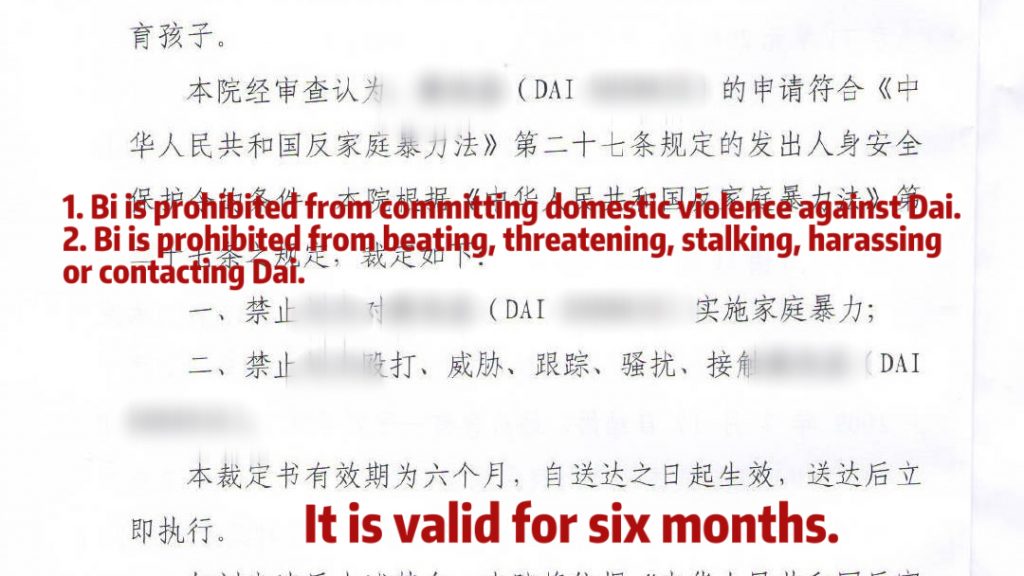
In similar cases in China, domestic violence is closely associated with cases of parental abduction, according to a report on child abducting and hiding in China published by Beijing Lianggao Law Firm.
Dai said that the purpose of all violence is to control and intimidate. “Once frightened, mothers will not dare to go against the wishes of the fathers to find their children,” she said.
Domestic violence itself is a form of control over mothers, and abducting children after a breakup is actually a continuation of that control, according to Zhang.
“Qiao’s trying to drive me into a crazy situation,” said Wang. But the two mothers were still hanging on.
“It’s hard to keep this constant, so I’ve been controlling my emotions,” said Dai. “A lot of mothers want to kill themselves, because we’re all feeling multiple things at the same time: divorce, domestic abuse, derailment and the loss of children.”
Dai founded Purple Ribbon in 2016, an organization that brings together legal experts and lawyers to help these mothers. There she met hundreds of mothers whose children had been abducted by their exes.
But since then, Dai said that leaving her ex-husband’s side can make her life better. It is like being free from a cage.
“Because I didn’t really have the space before, I had to listen to everything,” she said.
The worst part, of course, is not having her child around. “But I won’t give up. I have been trying and pursuing,” she said.
Wang said she had put life and death on the line to be reunited with her child. “I would rather be dying if I can’t see my son,” she said. “I’m not afraid.”
